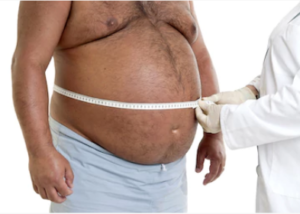Why do metabolic healthy obese people keep comparing themselves to “unhealthy thin” people when they should be comparing themselves to metabolically healthy THIN or straight-size people?
“In this situation, one should compare oneself to the best ideal, not to another version of poor health,” says Susan L. Besser, MD, with Mercy Medical Center, Baltimore; Diplomate, American Board of Obesity Medicine and board certified by the American Board of Family Medicine.
“The dangers of overweight and health worsen over time, so a ‘metabolically healthy’ obese patient eventually likely will develop issues.
“Of course, that doesn’t mean thin people are metabolically healthy either. They can have their own health issues.”
Large-Scale Study Says what Medical Professionals and Fitness Enthusiasts Have Been Saying All Along.
To put it succinctly, fat and healthy is still a lot worse than thin and healthy.
For the purposes of this article, “thin” refers to a medically acceptable body-fat percentage that creates a lean or proportional look in a person. This is also known as straight-size.
Study Results No Shock
Dr. Rishi Caleyachetty et al from the Institute of Applied Health Research, College of Medical and Dental Sciences, the University of Birmingham, UK, conducted a study with some not-so-surprising results.
Good metabolic health basically means that a person’s blood lipids, blood pressure and blood sugar levels are normal.
The “fat and healthy” camp, however, often dismisses this definition and uses “healthy” in a much broader sense.
You CAN be fat with good cholesterol numbers, low blood pressure and normal blood sugar.
But what about OTHER problems that obesity is notoriously linked to, such as some cancers, osteoarthritis in the knees, chronic back pain, tiring quickly, increased rate of complications while giving birth and mobility problems?

Shutterstock/narikan
Metabolic health has nothing to do with these other obesity-linked issues.
Can a “metabolically obese” person still be at higher risk of cardiovascular disease than metabolically thin people?
YES.
For the study, the primary care health records of metabolically healthy obese patients and their thinner counterparts were analyzed — for the period 1995-2015.
The records came from a large UK database called The Health Improvement Network and consisted of 3.5 million adults who were initially free of cardiovascular disease.
The patients were divided into groups according to body mass index and the absence or presence of three metabolic abnormalities (high blood pressure, high blood fats and diabetes).
A metabolic score ranging from zero to 3 was then constructed. Metabolic healthy obesity (MHO) meant zero abnormalities.
Four Cardiovascular Conditions
• Heart disease
• Cerebrovascular disease (which can lead to stroke)
• Congestive/chronic heart failure
• Peripheral vascular disease
Is the risk of these four conditions greater in people with MHO than in metabolically healthy thin patients?
• People with MHO has a 50 percent bigger risk for heart disease.
• Seven percent increased risk for cerebrovascular disease
• Doubled risk for CHF
• The presence or absence of smoking was adjusted for, too.
• When smoking was excluded from the equation, MHO patients had an 11 percent higher risk for PVD.
You may think that seven, “doubled” and 11 are too small to count, but from a population statistical standpoint, these figures are significant.
An increased number of metabolic abnormalities meant a higher risk of CVD conditions. A score of 3 meant the highest risk for all the conditions:
• 2.6 times higher risk of heart disease
• 58 percent greater risk for CVD
• 3.8 times higher risk for heart failure
• 2.2 times greater risk for PVD
In a nutshell, so-called metabolically healthy obese adults are at greater risk of coronary artery disease, chronic heart failure and cerebrovascular disease than are thin metabolically healthy people.
 Dr. Besser provides comprehensive family care, treating common and acute primary conditions like diabetes and hypertension. Her ongoing approach allows her the opportunity to provide accurate and critical diagnoses of more complex conditions and disorders.
Dr. Besser provides comprehensive family care, treating common and acute primary conditions like diabetes and hypertension. Her ongoing approach allows her the opportunity to provide accurate and critical diagnoses of more complex conditions and disorders.
 Lorra Garrick has been covering medical, fitness and cybersecurity topics for many years, having written thousands of articles for print magazines and websites, including as a ghostwriter. She’s also a former ACE-certified personal trainer.
Lorra Garrick has been covering medical, fitness and cybersecurity topics for many years, having written thousands of articles for print magazines and websites, including as a ghostwriter. She’s also a former ACE-certified personal trainer.
.










































